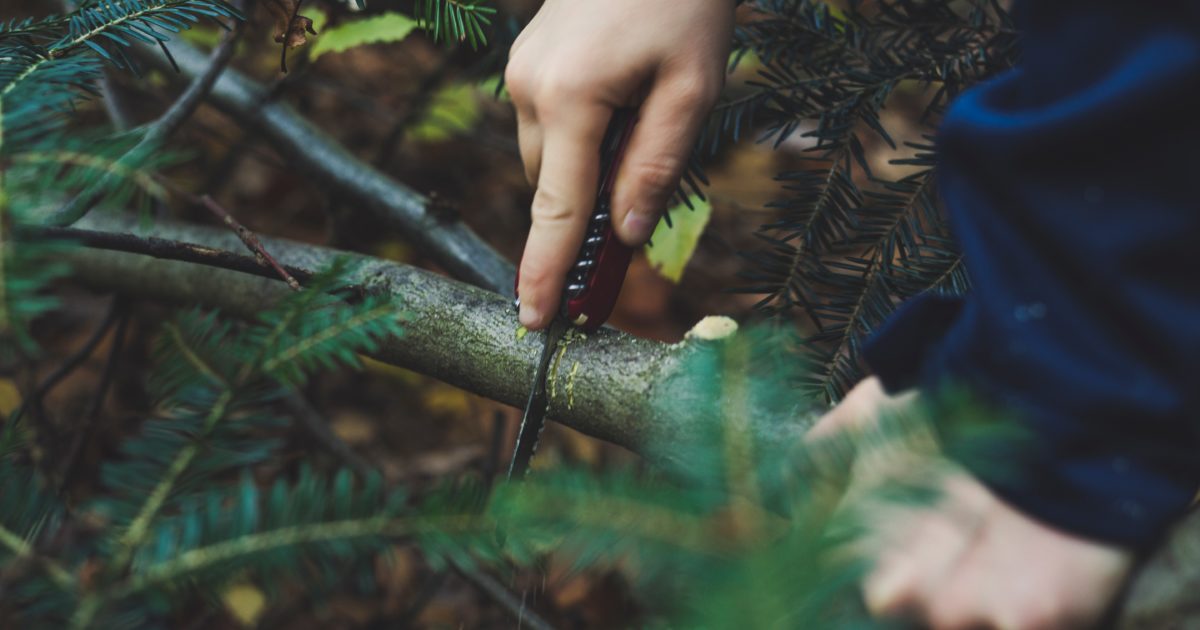When someone thinks “prepper” they might have a picture in their head of people living off-grid, deep in the back country with nothing but a knife and their wits. But prepping comes in a variety of styles and sizes. It can look like having two weeks of food and other supplies in your home, maybe having a natural disaster evacuation plan, or even as in-depth as creating a self-sufficient farm.
Whatever you think prepping is or whatever it looks like for you and your loved ones, there is no doubt that “being prepared” is something we all could be more of. Here are just a few reasons why prepper culture isn’t as far flung and apocalyptic as some think.
1. Nothing is permanent
Our current culture of Amazon Prime two-day delivery and endless grocery store options is a relatively new world. Our current consumption culture has made life as simple as “add to cart.”
Until 100 years ago, growing and preserving your own food was the norm across the entire world. You didn’t run to the store for items, you went to your own storehouse. Our ancestors were all preppers and the human race only exists in its current form because of their efforts to grow, gather and store their own food over the course of generations.
Our current generation has become accustomed to an array of options and having it all at our fingertips. But if COVID-19 has taught us anything, that is not always true. Panic buying will continue with greater frequency as uncertain times persist.
2. Natural disaster
Instability in our environment can wreak havoc on the supply chain. No matter how much technology we have, there will always be a need for crops and livestock – things that could be easily wiped out by a flood, wildfire, tornado or other natural disaster.
Even the bottleneck of meat processing plants came to the forefront in April 2020 when plants were shuttered in response to COVID-19 outbreaks.
Having a supply of food at home (a pantry that we recommend you constantly rotate in order to lengthen shelf life) is a good start. Growing and preserving your own is an even better one because then you are less dependent on stores and the broken supply chain.
3. Money, goods, and services
If you had to go without a job for six months, could you maintain your standard of living?
The vast majority of Americans do not – in fact, a staggering 69 percent of Americans have less than $1,000 saved for emergencies. Even establishing a savings account or investing in your retirement is a form of prepping. By setting a portion of your paycheck aside to savings, you’ll be prepared for a financial loss or financial instability.
Adopting a prepper mindset encourages individuals to live within their means and work with what they have instead of constantly consuming. It can help you reduce debt and dependence on credit cards and other traditional banking systems.
Also, buying items in bulk and stockpiling them actually saves you money in the long run. You can get creative in how you buy in bulk. Maybe you team up with a family member or neighbor and purchase a whole cow from a local rancher and have a local butcher divide and package the meat to store in a deep freezer. Perhaps you purchase a year’s supply of paper products and store them in your attic or shed. Whatever bulk buying looks like for you, you will have what you need when you need it.
Another financial consideration is recession. Our economy was booming prior to the outbreak of COVID-19 in March 2020. As our country manages the fall out of record unemployment and bankruptcy declarations, we could be on the pinnacle of another American recession. The government was drowning in debt prior to passing several emergency funding bills to assist citizens and businesses in April 2020. And there are more proposals in Congress to bring more government cash to Americans.
4. Cyber and terrorist attacks
We are so dependent on technology – even now you are probably reading this on a phone, tablet or computer. The threat to our technology and security increases every day. Many operations for companies are automated and rely on computers to function properly and with a click, those basic functions can be interrupted or disabled.
Cyber and terrorist attacks not only attack infrastructure, but how we receive and pay for goods. They can disrupt transportation and trade routes, the banking system, electric grids and more.
Do you have a plan if your credit card stops working? Or if trucking operations come to a halt and stop deliveries to your local grocery store? These are the kinds of questions preppers ask themselves so they and mitigate future threats.
5. Social unrest
Areas and regions destabilize following natural disasters, terrorist actions and during periods of uncertainty. If your default position is that the government will be there to help, you might want to think again. The government has a less than stellar track record of responding to emergencies.
Preparing yourself for an emergency – whether it’s a natural disaster or the end of the world – empowers you to make the best decisions for yourself instead of depending on the government to decide for you.
***
Helpful links:
https://thesurvivalmom.com/5-reasons-why-normal-people-shy-away-from-the-prepper-world/
https://www.happypreppers.com/25-reasons.html
https://www.happypreppers.com/cyber-attack.html
https://www.theorganicprepper.com/how-to-prepare-for-a-cyber-attack/
https://voxeu.org/article/mitigating-covid-19-panic-buying-lessons-historical-financial-crises

